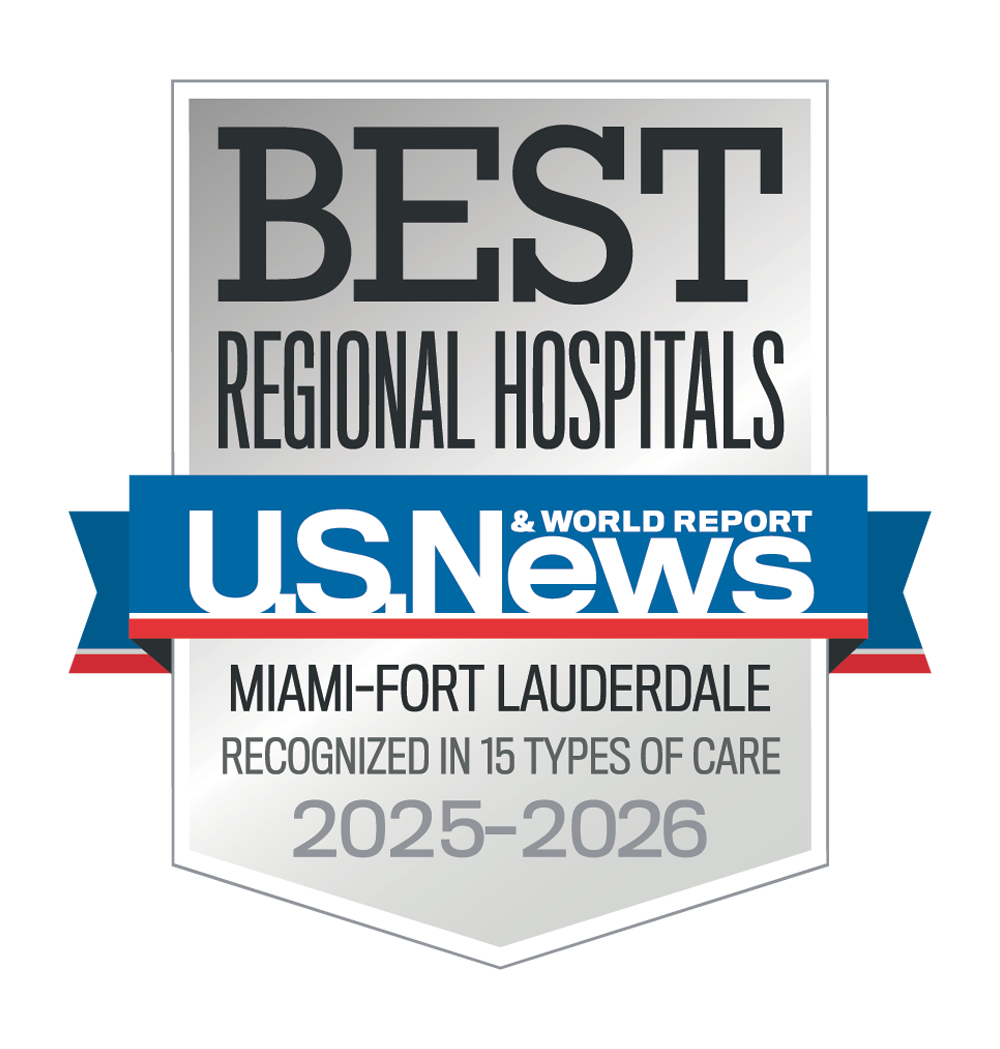University of Miami Health System
UHealth Earns National Distinction for Outpatient Excellence
UHealth has been named a 2025 Ambulatory Quality and Accountability Top Performer by Vizient®, recognizing its excellence in delivering high-quality outpatient care. UHealth is one of only five facilities nationwide to earn this distinction.
NATIONALLY RANKED IN THREE ADULT SPECIALTIES.
RATED AMONG THE BEST REGIONAL HOSPITALS & RECOGNIZED IN 15 TYPES OF CARE.




We are here to help.
Find a doctor, make an appointment, and search for clinical trials.
Our Doctors
Let us help you connect with world-class physicians
Appointments
Please call us to schedule an appointment.
305-243-4000
Clinical Trials
Search for a clinical trial by disease or condition
The Care You Need, When You Need It.
24/7 Expert Care, From Anywhere
UHealth NOW bilingual doctors are available 24/7, 365 days a year to diagnose non-emergency medical issues, recommend treatment, and prescribe medication.
Schedule a Video VisitConvenient Care From the Experts You Trust
UHealth Clinic at Walgreens is here when you need same day care for minor injuries and illnesses. Same day virtual and in-person appointments are available 7 days a week.
Schedule an AppointmentQuick Expert Eye Care, From the Comfort of Your Home
Schedule a Rapid Virtual Eye Care appointment for a quick and easy way to connect virtually with one of Bascom Palmer Eye Institute’s expert providers for common eye concerns.
Schedule a VisitExpert Specialty Care, When You Need It
UHealth Specialty Virtual Clinics are an easy way to access University of Miami Health System providers — in all specialties — on a secure telehealth platform.
Schedule a Video VisitFind a Doctor
Are you looking for a specific doctor? Find your doctor and schedule an appointment. You can browse available doctors by condition, specialty, provider name or last name.
Only NCI-Designated
Cancer Center in South Florida
Learn MoreRanked #1 in USA
by U.S. News & World Report in Ophthalmology for the 23rd time
Learn More
